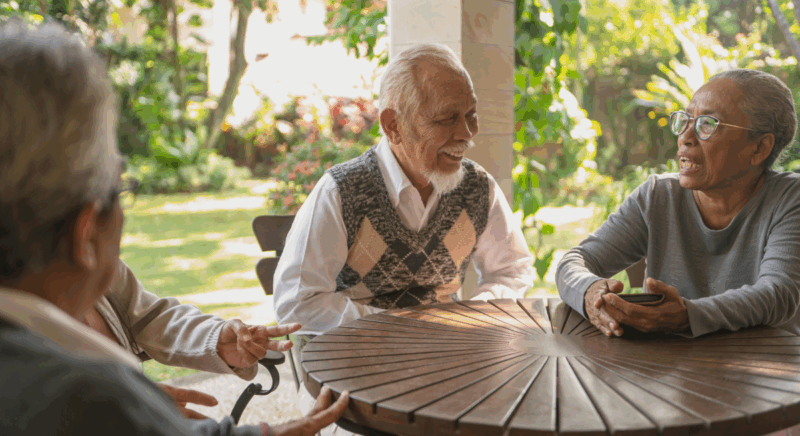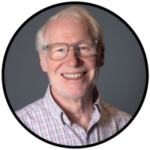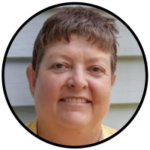Home » Shared Learning Series: Embracing Dementia Inclusion
Home » Shared Learning Series: Embracing Dementia Inclusion
Embracing Dementia Inclusion
As LeadingAge members strive to offer innovative and forward-thinking solutions for older adults living with dementia, it is important to consider why we often separate and confine people based on frailty or diagnosis—and explore the possibilities for individuals of diverse cognitive abilities to live together.

Register by April 13
The series is open to LeadingAge provider members only and is limited to 36 participants.
. . . . .
There are many ways to embark on a dementia–inclusion journey. Fully integrated communities do not offer a separate area, but rather support people with dementia across the continuum. Some organizations have started by unlocking the doors to memory care units, while others are making the boundaries between levels of care more permeable where services and amenities are shared by all residents.
About the Series
Fostering a sense of belonging is paramount to the well-being and quality of life of all who live and work in long-term care settings. Yet, creating less restrictive environments for those living with cognitive change is often an overlooked aspect of the resident experience.
This series will explore the practical implications of the shift toward intentional inclusion and begin to spark person-directed approaches aimed at moving toward more integrated settings that enable people with dementia to move freely throughout the residential community where they live and fully participate in community life.
As part of a small and highly engaged cohort, participants will hear from experienced subject-matter experts, advocates, and people living with dementia to:
-
Raise Our Collective Awareness
about the arguments in favor of creating integrated environments for those living with cognitive change.
-
Enhance Our Understanding
of risk in the lives of people living with dementia and how to strive for a balance that supports autonomy.
-
Identify Actionable Ways
to overcome challenges and address the real and perceived barriers to dementia-inclusion.
-
Gain New Perspective
to consider how we might seek the wisdom of the lived experience to sustain this ongoing work.
Please Note: We recognize that people with dementia live in settings across the continuum of housing, services, and supports. However, the focus of this series will primarily be on supporting people in residential settings (rather than home or community-based settings).
Series Information
The series is open to LeadingAge provider members only—irrespective of their professional experience or job title.
- Space is limited to a small cohort of 36 participants.
- A non-refundable fee of $1,125 per person is required to participate; additional participants from the same organization must each register and pay separately.
- Registration is on a first-come-first-served basis; registration closes on April 13.
- Participation in the program is limited to two individuals from the same organization.
LeadingAge seeks to eliminate barriers to participation in education programs by providing need-based discounts (up to 50%) to provider members with a demonstrated financial need or hardship situation and a commitment to ongoing professional (and personal) development. To be considered for financial assistance, please submit a request using our online form by March 20. LeadingAge will notify recipients ahead of the start of the program.
The goal of shared learning is to gain, build, and exchange ideas through a process of open dialogue and collective exploration—to really wrestle in the gray areas and engage in generative conversations with a diverse group of peers.
- To enable participants to share and learn from each other’s experiences, sessions will be highly interactive and include presentations as well as small and full group conversations.
- To encourage personal exploration and continued learning, suggested readings, videos, online dialogue, and other resources will be shared between sessions.
- To foster engagement and community-building, participants will be expected to be on camera and be present for the full duration of all sessions; due to the interactive nature, sessions are not recorded.
- Upon completion of the series, participants obtain a certificate of completion they can add to their LinkedIn profile; the series has not been approved for continuing education (CE) credits.
AI Note-Taking & Recording Bots: To protect participant privacy and maintain content integrity, AI-powered note-taking and recording bots are strictly prohibited during live gatherings.
Philosophical Underpinnings (Opening & Orientation) with Pat Sprigg | Wednesday, April 29 (1–4 p.m. ET)
Reflect on the foundational elements of a dementia-inclusive philosophy and set the stage for your participation in the series.
Supporting Inclusion for People with Dementia with Jennifer Carson, PhD | Wednesday, May 6 (1–4 p.m. ET)
Consider the arguments in favor of creating integrated settings where people living with cognitive change can live with meaning and purpose.
Overcoming Barriers with Jessica Luh Kim & Mary Beth Wighton | Wednesday, May 13 (1–4 p.m. ET)
Acknowledge the real and perceived barriers to dementia-inclusion and consider ways to overcome challenges.
Unpacking Autonomy, Risk, and Safety with Allen Power, MD | Wednesday, May 20 (1–4 p.m. ET)
Understand the importance of risk in the lives of people living with dementia and how to strive for a balance that supports autonomy.
Learning from Lived Experience with Sonya Barsness and Panelists TBA | Wednesday, May 27 (1–4 p.m. ET)
Hear what individuals living with dementia want for themselves and consider how you might continue seeking the wisdom of the lived experience as you sustain this ongoing work.
Please Note: This program has not been approved for continuing education (CE) credits. Upon completion of the series, participants obtain a certificate of achievement they can add to their LinkedIn profile.
Facilitators

Kirsten Jacobs, MSW
As vice president, shared learning initiatives, Kirsten leads LeadingAge’s shared learning strategy and provides thought leadership to various audiences, including speaking/presenting and delivering technical assistance to LeadingAge members on dementia, person-directed wellbeing and diversity, equity and inclusion. Kirsten co-leads LeadingAge’s ageism work and internal diversity, equity, and inclusion council, which support the organization’s mission and vision.

Jen Wilson, MPH
As Vice President of Well-Being at Carol Woods Retirement Community, Jen leads resident support services along the continuum of care, including primary care, rehabilitation, social work, fitness, Assisted Living and Skilled Nursing. Prior to Carol Woods she worked at the Carolinas Center for Medical Excellence, coaching North Carolina nursing homes through quality improvement efforts to implement person centered care and reduce restraint use.
Guest Speakers

Sonya Barsness Gerontologist
Sonya Barsness Consulting LLC
Sonya’s work focuses on applying a new paradigm of aging and dementia that is based on person-centered values of choice, dignity, respect, self-determination, purposeful living, and shared humanity.

Jennifer Carson, PhD
Director, Dementia Engagement, Education, and Research (DEER) Program
Jennifer’s work focuses on partnering with people living with dementia, care partners and other stakeholders to collaboratively develop research initiatives, program innovations and educational opportunities.

Jessica Luh Kim
Consultant and Educator
Jessica’s work focuses on changing the narrative and view on dementia through her professional and voluntary work.

Allen Power, MD
Internist, Geriatrician, Educator, and Author
Al’s work focuses on bringing knowledge into practice to transform the culture of care, from philosophical to system shifts, to physical design concepts for community living.

Pat Sprigg, Retired CEO
Carol Woods Retirement Community
Pat’s work focuses on advocating for integration of people living with dementia.

Mary Beth Wighton
Advocate Living with Dementia
Mary Beth’s work, since being diagnosed with frontotemporal dementia, focuses on transforming her personal journey into a powerful advocacy mission.
Why Do We Segregate People Living with Dementia?
Have you ever stopped to wonder why we, as a society and a field, separate and confine people based on a diagnosis of dementia? Who else in our society is segregated and lives behind locked doors? It’s time to ask whether there’s a better way. Just like we learned the value of moving away from an institutional model of care and restraint use in nursing homes, could we also learn the value of creating inclusive communities where people of all cognitive abilities live together? Read the full article by the series’ co-facilitators, Jen Wilson and Kirsten Jacobs.
Moving Toward Dementia Inclusion in Residential Care
In this 18-minute QuickCast, Kirsten Jacobs offers a thought-provoking introduction to reimagining dementia support through a more inclusive lens. Get a glimpse of what you’ll expound upon in this Shared Learning Series. Free access for LeadingAge members.
Discover. Connect. Learn.
Participate in our Embracing Dementia Inclusion Series to explore the possibilities for individuals with diverse cognitive abilities to live together.
Sign Up for Email Alerts
Hi, I’m Jaia!
Contact me with any questions you have about this Shared Learning Series.
“This was an inspiring program that truly opens one’s mind to viewing memory care through the lens of someone who needs support. It encourages us to think more compassionately and collaboratively about how we can create a better world for those living with memory challenges.”
Lajja Lantigua
Director of Resident Engagement, North Hill, Needham Retirement Community